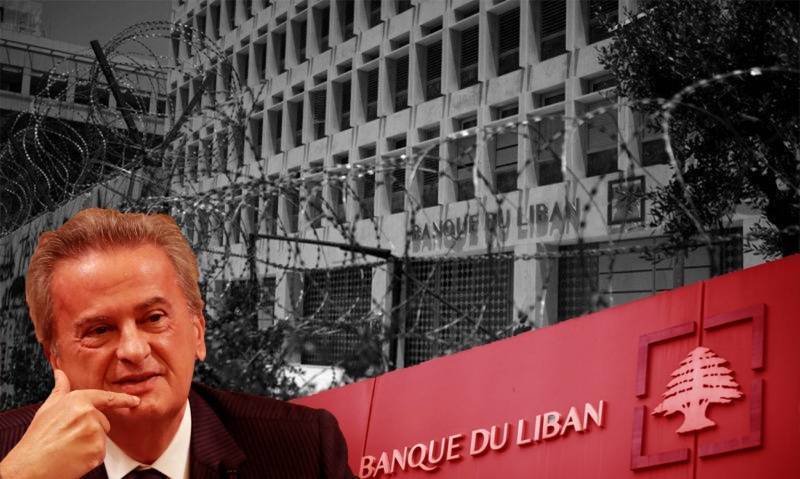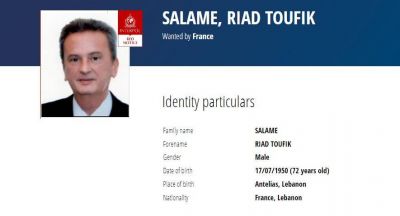
Banque du Liban governor Riad Salameh. (Credit: Illustration by Guilhem Dorandeu, photo by João Sousa/L'Orient-Le Jour)
BEIRUT — Banque du Liban governor Riad Salameh told the Associated Press Friday that he intends to appeal the Interpol notice Lebanon received following an international arrest warrant for his arrest.
Salameh is the subject of multiple criminal investigations for alleged financial wrongdoings, in both Lebanon and Europe. The BDL chief constantly denies the accusations against him.
A French judge issued Salameh's international arrest warrant on May 16; the next day, Lebanon's justice ministry received a red notice from Interpol against the central bank governor.
In an interview with AP Friday, Salameh reiterated his intention to challenge the Interpol notice, citing that he did not personally receive the summons to appear for questioning in Paris “according to the rules and laws.”
Judicial officials said that the Central Bank returned the summons after it arrived during Salameh's absence from the bank.
“I am introducing an appeal to cancel the notice,” Salameh told the AP.
The Public Prosecutor's Office at the Court of Cassation received a copy of the Interpol red notice, the state-run National News Agency reported Friday. Judge Ghassan Oueidat has reportedly begun reviewing the notice and is due to set a date for for Salameh's hearing next week.
Officials call on Salameh to resign
"Whatever the judiciary says, we will do," caretaker Interior Minister Bassam Mawlawi told Reuters Friday, adding that he believes it is "necessary" for Salameh to resign.
Mawlawi added that the issue would be discussed at a consultative cabinet meeting Monday, but was already part of talks among the country's senior leaders.
"It's being seriously discussed," Mawlawi said.
Lebanon's caretaker Deputy Prime Minister Saade Chami called on the BDL governor to step down Thursday.
'In a fugitive position'
Interviewed by L'Orient-Le Jour, international law expert Abdo Ghossoub stated that "the red notice is an international wanted notice issued on the basis of an arrest warrant. By this means, Interpol asks police authorities of countries around the world to locate a person with a view to arresting him."
"Many people mistakenly believe that, when it comes to an arrest warrant, the red notice is an extradition request. But only a judgment can be the basis for such a request. In this case, what is required is only to execute the arrest warrant," the expert added.
For his part, a lawyer for one of the associations involved in the proceedings in France had estimated that, as Salameh is now "in the position of a fugitive," he was not in a position to appeal the arrest warrant, and that he would only recover this right when he was under arrest.
Salameh is the subject of several investigations in Lebanon and Europe, where he is suspected of having built up a wealth of real estate and banking assets through complex financial arrangement and massive misappropriation of public funds.
Salameh said in an interview with the pan-Arab channel al-Hadath Thursday that he would resign "if a judgment is rendered" against him, adding that he would leave office at the end of his term on July 31.


